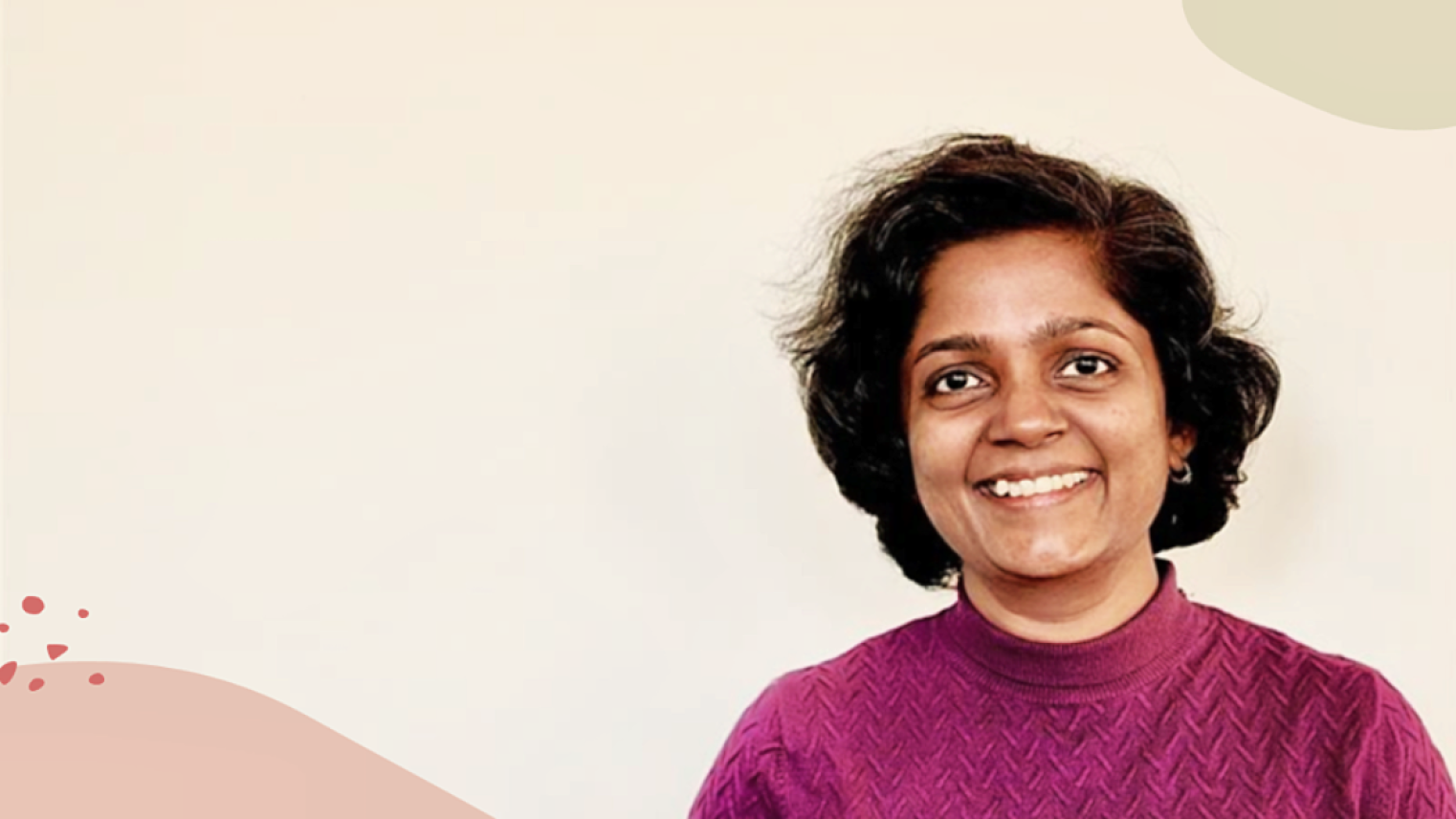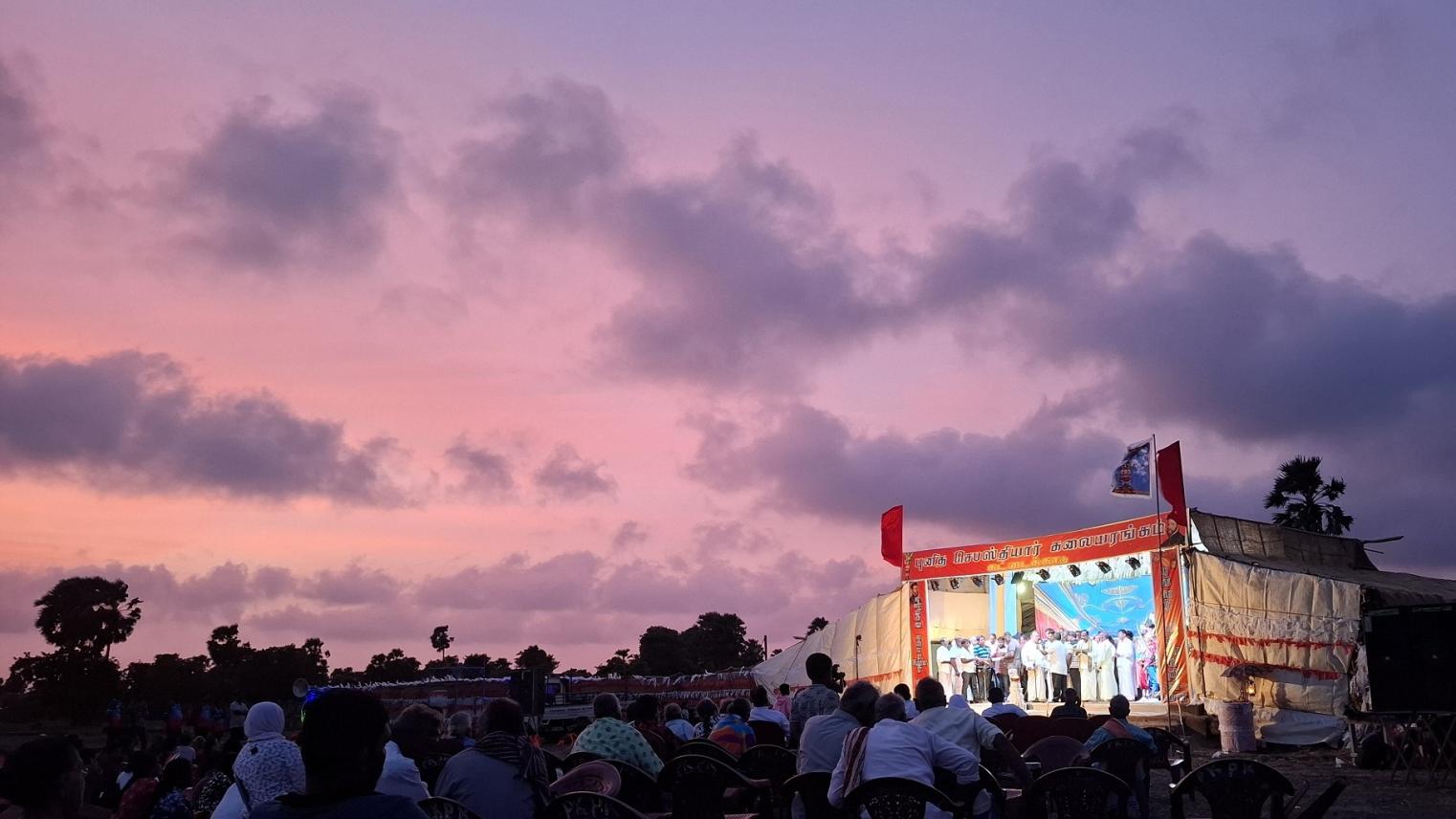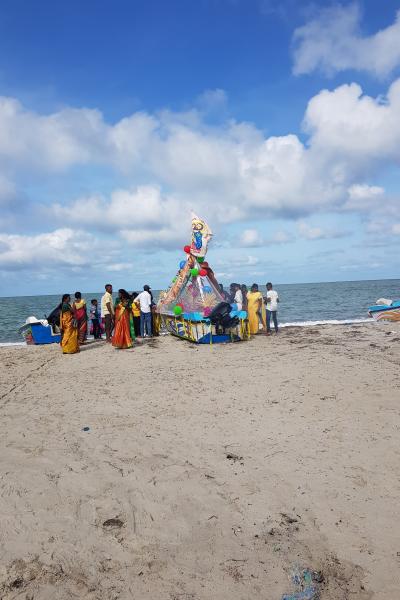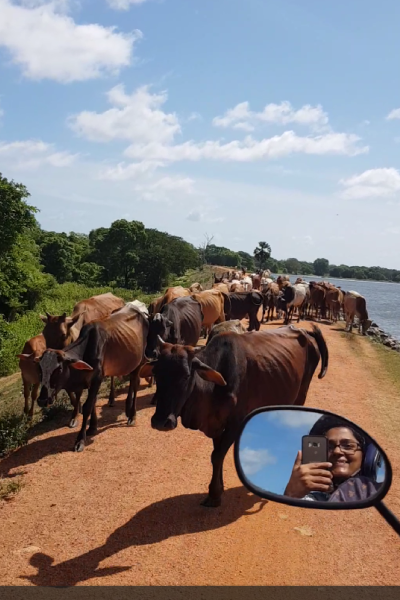Between sacred and contested: Nadine’s ethnographic journey

For Nadine, the path to academia has been anything but conventional. After a decade in the development sector, Nadine brought her rich background in English literature, linguistics, and ethnography to a new chapter: academic research.
Nadine’s research focuses on sacred places within Sri Lanka’s Tamil ethnic groups—churches, mosques, temples, and villages—seeking to understand how places become or are made sacred; why these spaces are shared and why they sometimes become sites of conflict. The beginnings of her work are the post-war rebuilding phase, exploring how communities navigate the transition from war to peace through their sacred spaces.
In post-war Sri Lanka, where majoritarian narratives shape history and heritage, sacred spaces serve as more than just religious sites—they are reclaimed as places of affirmation for identity, connection to land, ancestry, and collective memory. It’s not about religion,” Nadine explains. “It’s about power and heritage—the ongoing work people do to make and keep places sacred.”
Ethnography: Immersion and revelation
Returning to her grandmother’s village as she initiated her fieldwork, Nadine expected a warm reception, but instead, she found herself a stranger. “Being my grandmother’s granddaughter wasn’t enough,” she recalls. “I needed much more.” Over time, however, through deep engagement and participation in religious rituals, community events, and interfaith dialogues, she earned their trust. Ethnography, she realised, was essential to experiencing and understanding this world she had entered.
“Ethnography is a method of research and a way of seeing things that involves a deep immersion into a culture or place where you become part of your field site and live there in the traditional sense. I saw the approach as something really meaningful, because it brought me out into the real world of engaging and interacting with people.”
Nadine’s fieldwork—from temple, church and village rituals to interfaith meetings—revealed how coexistence and conflict often coexist in the same space. At sites of harmony, she found a window into the complexities of identity, while at places of tension, she encountered resistance. “At sites of tension, I was not welcomed so openly, so I worked around this; I went to sites of co-existence and understood conflict in the context of co-existence.”
One moment that has stayed with her was when a Hindu elder joyfully marked her forehead with holy ash, celebrating what he saw as her connection to ancestral traditions. But not every encounter was easy—some interactions revealed the quiet frictions and unspoken boundaries that persist within these sacred spaces.
As she begins writing her thesis, Nadine is acutely aware of the ethical dilemmas in documenting her findings. Her work sheds light on an ethnic minority within a minority, and she grapples with the responsibility of representing them truthfully while protecting them from potential exploitation. She admits, “Knowledge can be dangerous. The writing process for me is an ethical one, filled with love, respect, and consideration.”

Beyond the PhD
Post-PhD, Nadine envisions a future where she straddles both academia and the development sector. She hopes to contribute her expertise to a rural academic institution, ensuring that research in this space continues to grow. “You really need to be sure what you want to do. “Some know immediately, but for me, working, gaining grassroots experience, really helped me to understand and realise my passion. It’s a commitment, but one that I’m deeply passionate about. “The task of writing excites me, especially the layer of dilemma that poses the challenge of how to represent her people suitably while being true to my experience but also to my research intentions.”
And outside of academia? “My family actually thinks I’m boring,” she laughs. “I over-analyse everything. But I love to travel, I love to sing, and I have a soft spot for musicals.” During her fieldwork, Nadine rose to the challenge and broke into some adventurous moments. Riding on motorcycles is a fun and quirky memory of her time there, and she also went on a boat during a ceremony of blessings on the sea.


Nadine’s journey—rooted in both personal history and professional passion—shows how ethnography can illuminate the invisible forces that shape our most sacred and contested spaces.